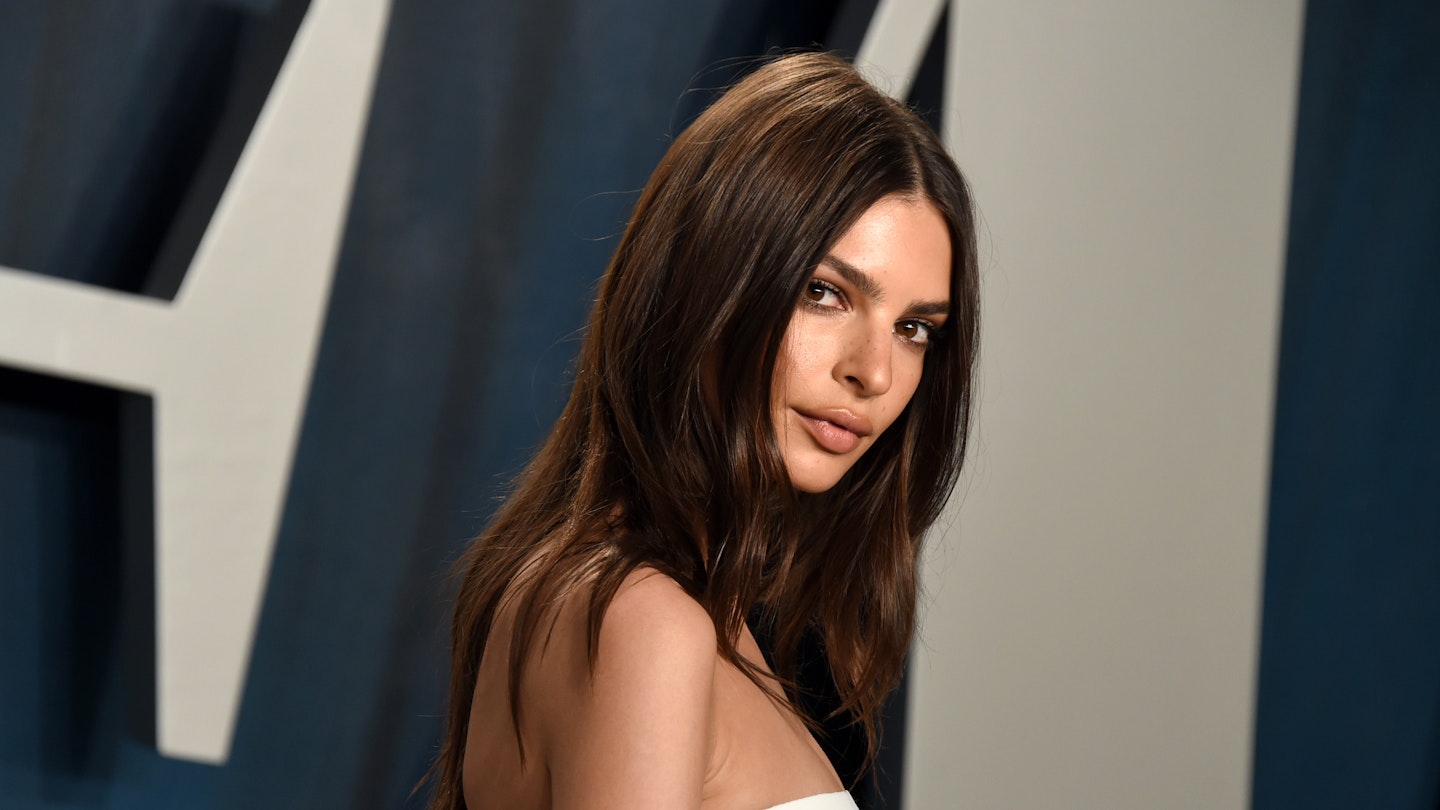Piers Morgan doesn't seem to love the idea of women doing what they want with no consideration for what white middle-class men might think. His most recent target? Model and actress Emily Ratajkowski. Following the release of her empowering set of nude images - taken while heavily pregnant - Piers attacked her for stripping off and labelled her as 'doing it just for clicks.' But he's not the only one to hold her in such disregard. One Grazia writer analysed their own ill will toward Emily last year...
Have you read Emily Ratajkowski’s incredible essay on reclaiming her image? You should. It is an astounding piece of writing, honest and naked and damning of an industry that has misjudged and mistreated the model and actress. It raises pertinent questions concerning who truly owns a picture of a person, and traces Emily’s difficulties with facing up to seeing other people claim rights to her face, to her body, to her very being, simply because they have taken her picture (with or without consent) or recreated her own social media posts in the name of art.
She accuses photographer Jonathan Leder of sexually assaulting her in 2012, and publishing a book of her nudes without her consent. Having called the claims ‘too tawdry and childish to respond to’ when approached by The Cut, he has since denied them altogether. But, at the very least, he stands accused of publishing 71 explicit pictures of a woman without her permission. Having read the essay, I think a lot of us should be hanging our heads for how we have treated her.
Emily Ratajkowski became internationally recognisable in 2013, when her participation in Robin Thicke’s Blurred Lines – a crass ode to what the singer seems to consider persistence, which instead reads as a lack of understanding around consent – made her a sex symbol overnight. It would not be an exaggeration to say that I have seen Emily’s face and body once a day since then. Via Instagram, Twitter, reading magazines, scrolling down the sidebars on gossip websites, perusing the websites of photo agencies and watching her pop up in films or on television, her image is everywhere. I have never warmed to her. Sometimes I saw shots of her walking her dog, wearing a barely-there ensemble showing her clear skin and the line down her torso known as the ab crack, and I rolled my eyes, or mocked her internally for running errands in skimpy outfits. When she disrobed in David Fincher’s excellent film Gone Girl, in which she plays Ben Affleck’s mistress, I thought ‘well, of course she gets her boobs out. What else is she going to do?’ I didn’t bat an eyelid when other, more ‘serious’ actors got naked for sex scenes. I judged Emily for doing something that any woman should be able to do: celebrate her body, know her own worth, play to her strengths.
I know I am not the only person in the world to have unfairly judged Emily. I have read many pieces about how she is a weapon against feminism, or complaining that her shoots – I recall the one where she eats spaghetti in a bikini caused quite the furore – verged on pornographic. But we need to stop criticising women for being savvy enough to see that the male gaze is real and powerful, and then using it, flipping it, reappropriating it for their own benefit.
Emily has done nothing wrong. I didn’t dislike her because of any secret intel claiming that she was cruel, unpleasant or callous. I think I disliked her because I couldn’t imagine that a woman who looks like her could be anything but vapid. I think a lot of us are guilty of that, and we need to re-evaluate, and interrogate our own internal prejudices. It says a lot more about us than it does about her.
In recent months, I have thought a lot about how the way we treat women in the public eye is changing. Like many of us, I’ve looked at how we let down actress Megan Fox, ignoring her voice because of the louder volume of the men around her. Emily’s profound essay, and the horrific allegations she includes within it, has made me look at where my bias against her came from. But we can’t wait for a woman to prove herself as being in possession of a brain, or a horrible story of assault, before we begin to wonder if we have misjudged them. A woman should not have to earn a base level of respect. When it comes to beautiful women who live their lives in the public eye – particularly those who exhibit their body as part of their work - our default setting seems to be inherently negative. It takes an assault or a major revelation or a well-written essay to make us rethink. It needs to stop. We, I, need to flip the switch.
Every woman, every person, is worthy of respect regardless of the industry they work in, and how they are presented. No one is deserving of automatic judgment simply because they possess something that we cannot. In our treatment of beautiful women, we have proven that we possess something truly ugly. We have to do better.
READ MORE: Ashley James: 'We Shouldn't Be Able To Photoshop Our Appearance With One Swipe'
READ MORE: 'We All Want A SM
